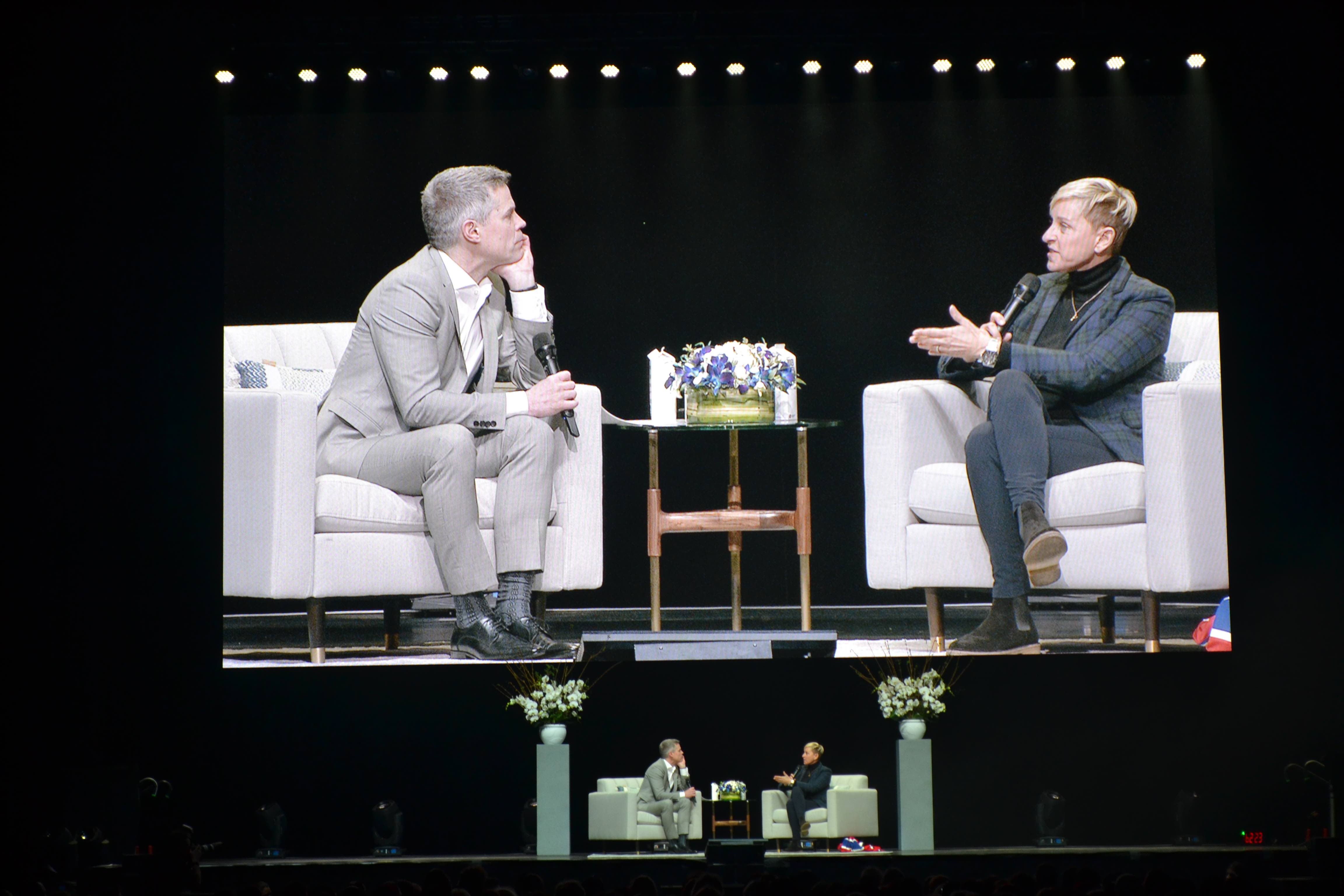Ellen DeGeneres on self-love and acceptance at Montreal tour stop
TV talk show mogul and stand-up comedian Ellen DeGeneres shared her story with a crowd of thousands at the Bell Centre on March 1 as one of the pit stops on her talking tour: “A Conversation with Ellen DeGeneres.”
DeGeneres was greeted with a round of applause as she waved a custom “Ellen” Montreal Canadiens jersey to the crowd. After receiving a brief French lesson, DeGeneres began cracking jokes with the audience. “I’ve been here before,” said DeGeneres. “It’s a beautiful, beautiful city. It is very cold. Do you know you don’t have to be here? It’s not this cold everywhere. Have your parents lied to you?”
In the early 1980s, DeGeneres’s career in stand-up comedy took off. Her claim to fame came in 1986 as the first and only woman to ever be asked to sit next to Johnny Carson following her bit on The Tonight Show starring Johnny Carson. A decade later, despite a successful stand-up career and being the star of the Ellen sitcom show, DeGeneres felt like something was missing.
In 1997, DeGeneres made the choice to come out as gay in an interview with Oprah Winfrey, and again on her sitcom. “I hate lying and I never lie about anything,” said DeGeneres. “That’s one big lie and if anyone found out I was gay, I would lose everything.”
DeGeneres attributed her reasoning to a dream she once had about herself as a bird trapped in a cage. “The bird being me said ‘I don’t belong in here,’” said DeGeneres. “I woke up and said ‘I’m coming out.’” The bird realized it was small enough to fly between the bars and escape through an open window.
While DeGeneres was praised as a hero the day her coming out episode aired, the tables quickly turned and she was met with hate, including bomb threats and death threats. Ellen was soon cancelled and the comedian claimed her phone did not ring for three years following. “Well, it was unplugged,” said DeGeneres, jokingly.
Fast forward to over two decades later, DeGeneres is one of the most famous talk show hosts and philanthropists. She has won dozens of awards, hosted numerous award shows, received the Presidential Medal of Freedom and has given over $97 million in prizes and donations to fans on The Ellen DeGeneres Show.
Yet, it is not only through her humour that DeGeneres manages to stay on top. Her longevity could be accredited to her uplifting view of the world around her. DeGeneres encourages everyone to be themselves and to love themselves despite their biggest insecurities. Her tale of struggle and recovery brought tears to the eyes of some in the room. It was not the sadness of the story that stood out, but instead the positivity that DeGeneres has always carried with her that had people of all ages gather to see her talk.
DeGeneres did not need to convey her message explicitly, the idea was clear: love will conquer all. Towards the end of the night, moderator Dave Kelly noted that many people hear their names only when they’ve done something wrong, so he asked the crowd to say DeGeneres’s name with love and respect.
“Ellen!” the crowd chanted. “I’ll do it too,” DeGeneres said in response. “Jean-Claude, Mélissa, Stuart… it’s taking too long. I’ll just say Montreal.” Addressed with love and respect, Montreal felt DeGeneres’s warmth as they left the venue to brace the cold that awaited them outside.
Feature photo by Jacob Carey
